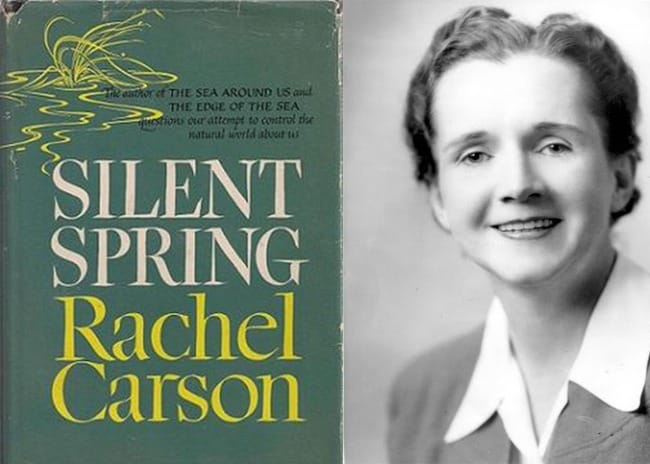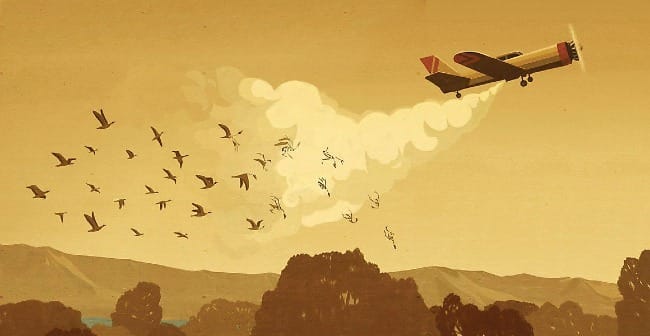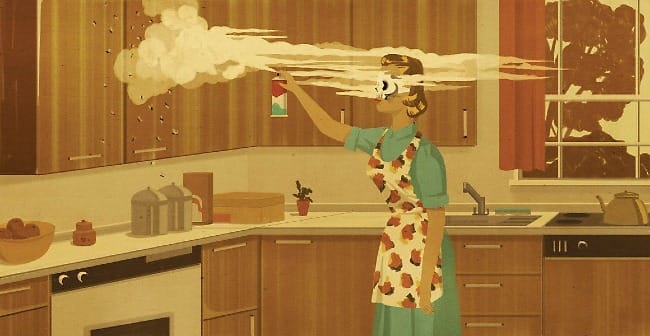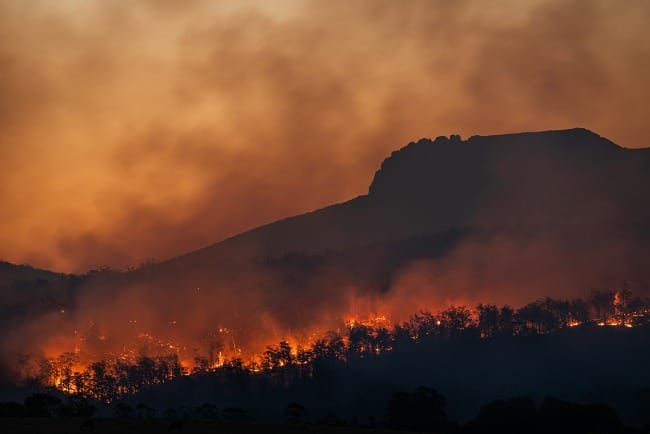Most of us walk unseeing through the world, unaware alike of its beauties and wonders and of the strange and sometimes terrible intensity of the lives that are being lived about us.
Rachel Carson, Silent Spring
Sixty years ago, Rachel Carson’s book Silent Spring was published, first as a three-part series in The New Yorker and then as a book. The impact of that writing has been immense. It ignited the environmental movement in the United States and can be linked to much of the environmental progress that has been made in this country. The book is also an eloquent piece of prose.

Combining her knowledge as a biologist and her skill as a writer, Carson illuminated readers on the dangers of pesticides in an interconnected world, making already available research readable, understandable, and compelling. It propelled environmental concerns into the public consciousness and today, in honor of its 60th anniversary year, the 52nd anniversary of Earth Day and the first anniversary of this journal, The Ecological Disciple, I look at Silent Spring and consider how its principles might be helpful in facing our current ecological problems. I encourage you to read the entire book when you have a chance.
The Cost of Ignorance and Greed
Rachel Carson was specifically addressing the costs of pesticides—their immediate financial costs—but even more, the far-reaching and more circuitous costs of microscopic and systemic damage that filtered into the earth's natural systems as a result of their use. Through fable and fact, she emphasizes the interconnectedness of the ecosystem and how, when we fiddle with one thing without taking into account the effects on something else, we enter dangerous territory.

For each of us, this is a problem of interrelationships, of interdependence—essentially, of ecology. We poison the caddis flies in a stream, and the salmon runs dwindle and die. We poison the gnats in a lake, and the poison travels from link to link of the food chain, and soon the birds of the lake margin become its victims. We spray our elms, and the following springs are silent, empty of robin song, not because we attacked the robins directly but because the poison travelled, step by step, through the now familiar cycle of elm leaf to earthworm to robin... In this unseen world, minute causes produce mighty effects; the effect, moreover, often seems to have no connection with the cause, appearing in a part of the body remote from the area where the original injury was sustained.

Ignorance, either intentional or unintentional, is dangerous. When we embrace what we see as progress, without knowing, or working out, what the unintended results of our action might be, the single minded pursuit of our goal is often disastrous.
The presence of radioactive particles and man-made chemicals in the world casts a shadow that is no less ominous because it is formless and obscure, no less frightening because it is simply impossible at the moment to predict the effects of lifetime exposure to chemical and physical agents that are not part of the biological experience of man. “We all live under the shadow of a haunting fear that something may corrupt the environment to the point where man joins the dinosaurs as an obsolete form of life,” Dr. David E. Price, of the United States Public Health Service.

In addition to ignorance, we are susceptible to a laziness in our thoughts and actions. Nature is complex and human-introduced changes are rarely simple and uncomplicated.
Nature has introduced great variety into the landscape, but man has displayed a passion for simplifying it. Thus he undoes the built-in checks and balances by which nature holds the various species within bounds.
Greed is unfortunately often the motivating force. In the case of pesticides, those who benefited economically from the reliance on expensive, chemical pesticides refused to see or acknowledge the negative effects of their actions because it would hurt their profit margin (sound familiar?). Carson uses a well-known gospel parable to shed light on this attitude.
Like the priest and the Levite in the biblical story, the control men in the state and federal governments and, of course, the chemical manufacturers—choose to pass by on the other side and to see nothing.
From a Christian perspective, refusing to see a truth is never a good thing. We are always called to love the truth and act upon it, even when it hurts our profit margin.
Our Present Times
A lot of progress has been made in the regulation of pesticides, but as a nation and a world, we continue to repeat patterns of ignorance, greed, and carelessness in new areas of environmental crisis. The words of Silent Spring can helps us as we consider how to tackle these other issues with the same energy and determination that was needed to the tackle the dangers of pesticides. We can make significant changes—and we know this because we have made changes in the past. But it requires that we listen to reliable research, think more deeply, and work harder, exchanging short-sighted, lazy solutions for those that increase the health of the world instead of damaging it.

In the same way that politicians and those with business interests ignored the danger of DDT and other chemical exposures, many with vested interest in the status quo still choose "to pass by on the other side and to see nothing," ignoring, burying or disputing consistent scientific findings. The following paragraph is true not only in its original context, but can also be read with insertions of "deforestation" or "fossil fuel use" in place of "pesticide applications" or "poisonous chemicals." It remains powerfully applicable to these new challenges as well as the ones from 60 years ago.
This is an era of specialists, each of whom sees his own problem and is unaware of or indifferent to the larger frame into which it fits. It is also an era dominated by industry, in which the right to make money, at whatever cost to others, is seldom challenged. We shall have no relief from this poisoning of the environment until our officials have the courage and integrity to declare that the public welfare is more important than dollars, and to enforce this point of view in the face of all pressures and all protests, even from the public itself. On those occasions when the public, confronted with some obvious evidence of the damaging results of pesticide applications, has ventured to question the use of poisonous chemicals, it has been fed little tranquilizing pills of half truth. We urgently need to put an end to these false assurances. It is the public that is being asked to assume the risks....

Although the greatest environmental hazards of the day may change, our contributions to those unfortunately persist, and to combat current problems requires the same zeal and energy that were eventually harnessed to work on the problems of pesticides.
Additional Quotes from Silent Spring
I include below a few additional thoughts from Silent Spring—reminders to think before we act, since even our our "small" actions directly affect the health of this world and its ecosystems.
As Carson says, we have to stop pretending that our actions have no lasting consequences:
Sometimes we have no choice but to disturb the relationships between plants and the earth, between plants and other plants, and between plants and animals, yet we should do so thoughtfully, with full awareness that what we do may have consequences remote in time and place.
We must understand that our actions are not discrete:
Seldom if ever does nature operate in separate compartments, and she has not done so in distributing the earth’s water supply.
We need to see beyond the immediate "problem" and envisioned "solution" to a bigger picture of this world:
Water, soil, and the earth’s green mantle of plants make up the world that supports the animal life of the earth.
We will pay the price if we are careless with our actions:
The balance of nature has never been static; it is fluid, ever shifting, in a constant state of adjustment. Man himself is part of this balance. Sometimes the balance is in his favor; sometimes—and all too often through his own activities—it is shifted to his disadvantage.
Reading Silent Spring 60 years after its publication gives me hope because, as a result of its publication, things changed. Government and personal action was taken. Things improved. The environmental movement in the U.S. was born. A few year later, the first Earth Day was celebrated—a great first step is deciding to choose not "to pass by on the other side and to see nothing."
Louise
I would love to hear from you - contact me directly at info@circlewood.online.
Quick Reminder
Last week I invited readers to step in close to see the very specific details of something that is right in front of you and take a picture (or create a drawing) of something that intrigues you when you observe it from up close. Send to me by April 25th and it will part of my post next week. I look forward to sharing what you see!
